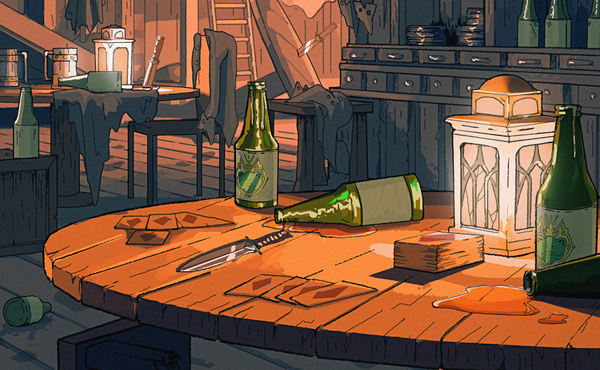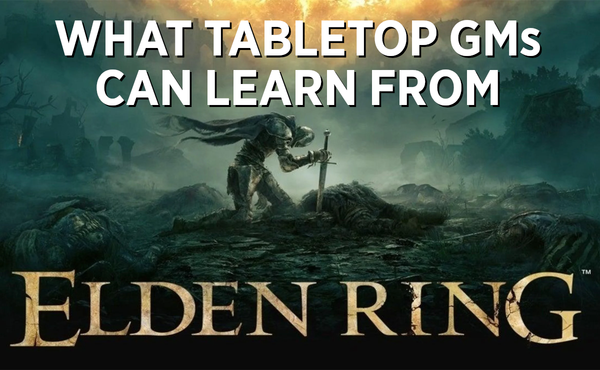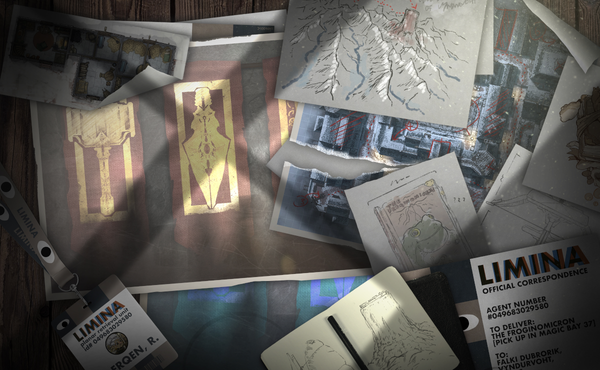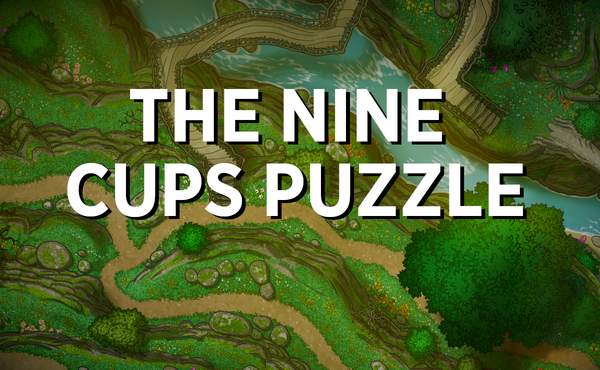A Glimpse Into How She Games - Interview with Ginny Di
A conversation with RPG guru Ginny Di about session prep, NPC creation, and kenku reproduction.
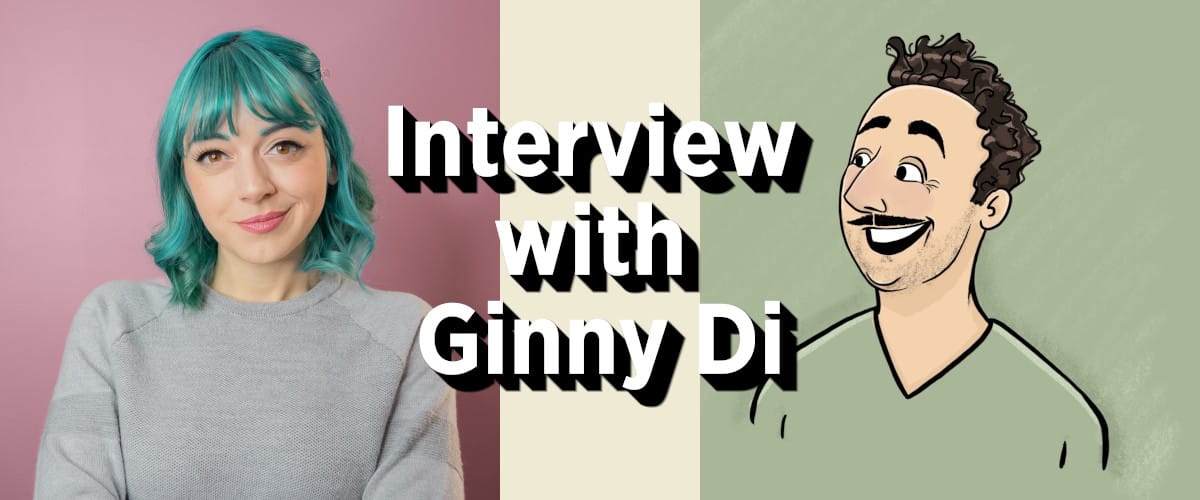
This week, I had a long chat with Ginny Di (YouTuber, cosplayer, tabletop writer, and all-around RPG guru). Ginny is probably most well known for her enormous collection of videos aimed at helping both players and GMs shine at their tables. I had spoken with Ginny before about a few of her home games, and so I really wanted to hear how her stated RPG philosophy intersects with her approach to gaming with her friends.
Ginny is all over the internet. If you're at all interested in her work, check out her YouTube page, buy her book, and listen to the gorgeous love song she recorded with us!
Will Savino: If you're up for it, I would love to discuss an open secret in our scene, which is that a lot of our peers—both in the YouTube space and among RPG asset creators—don't actually play tabletop games nearly as much as they say or imply that they do. I know for a fact, however, that you actually do play a lot of games both professionally and at home. Can you tell me about some of the more recent campaigns or one-shots that you've been a part of that haven't been a podcast or a YouTube series or published by Lego or anything like that?
Ginny Di: Definitely. Contrary to a lot of creators in this space, I don't have my own streamed game. I guest in places, and that's pretty much it, and I don't do that that often. The vast majority of my gaming is fully offline, just with my friends for fun in my real life. I like it that way! I like to keep it that way. As fun as actual play is, it's a totally different gaming experience than playing with your friends. I feel like the way that I continue to have things to say about D&D on my channel is because I am regularly playing the game that I'm talking about.
In fact, there was a time when one of my games had ended and the other had really significantly slowed down for COVID, and I found myself struggling to come up with things to talk about when I wasn't actively playing as much.
So I've definitely prioritized—not just for myself for fun, because I love playing—but also, it's hard to run a tabletop gaming content creation thing if you aren't tabletop gaming! I'm actually stunned whenever I find out that somebody doesn't really play that much, because I'm like, “how do you even find things to talk about without playing?”
In answer to your actual question, I'm in a game that's been going for a zillion years. My longest running campaign as a player is, I think, on year four or coming up on year five or something like that. It’s a very long time, which is completely our fault as players. We just like to have 45-minute conversations with every NPC. We regularly go whole sessions where all we do is talk about stuff and plan, which is, like... I'm sure my DM is just falling asleep.
Will Savino: But I love those sessions, and you can't do that in an actual play context because listeners would be bored as hell. To me, that's one of the biggest disconnects between what players learn about RPGs by listening to Critical Role or whatever, and then what it's actually like to play. Because I love to, as a GM, present players with a thing and then just say, “okay, you guys roleplay figuring out what the hell you're going to do next, because I know you don't know what you’re going to do, and I know it's fun to plan!”
Ginny Di: We have so many conversations amongst ourselves or with NPCs that are just enjoyable to roleplay but that aren't necessarily advancing the plot in any sort of meaningful way. Like if an NPC is annoying, we enjoy playfully ribbing that NPC, and we have a lot of fun with those kinds of conversations. But that means that the actual plot points of the narrative gets so stretched out because we are just always fucking around.
So that's that one game, which is fun. That's the one where I play Penelope, my Path of the Beast Barbarian, which is the only time I've ever played a martial class this long. And… I miss spells a lot. This has made me realize that I want to play a spellcaster in most games. But she just wrapped up her personal arc, which is also fun. Our party is split into these two halves: the people who are still working on their personal arcs and the people who have accomplished their character goal and are along for the ride now. So I've just switched teams and I get to be on that side now, which is fun.
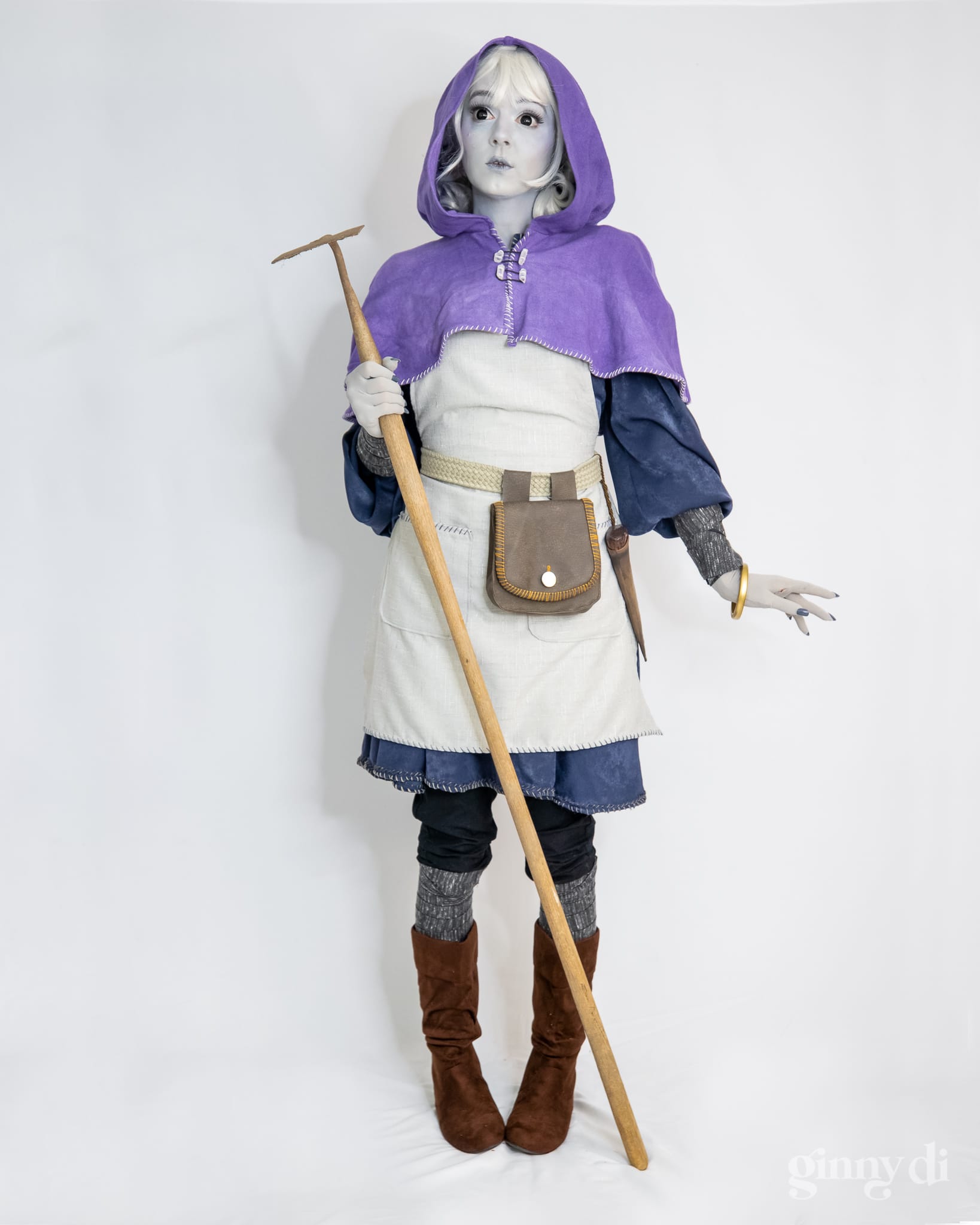
Also, I was running a campaign. At first, we were experimenting with another system, and then after a few months, we realized we didn't love it, and we were also interested in trying out the new D&D materials. So, we pivoted over to New D&D, but then that game ended up ending over personal stuff, which is unfortunate because we were just getting started with the new 2024 rules.
Also, [my husband] Josh has just begun DMing his first campaign, which is awesome. It's been really fun to get to be over-his-shoulder support for him as he figures that out. And, of course, I'm playing in it as a spellcaster because I learned my lesson. And yeah, that's been really fun and exciting.
But right now, I'm actually not DMing anything ever since that last campaign ended, so I'm trying to figure out now what the next group is for me. And I would really like to try running a pre-written campaign, like a module, because I've actually never done that, and that seems insane!
Will Savino: Right. I mean, I don't write strict modules exactly, but a lot of what I write is fairly prescriptive. And [you and I] both give all this advice about running adventures and stuff, but I don't want to run someone else's adventure! But maybe that is a core part of the experience that I've been missing.
Ginny Di: Right. It feels crazy to me that I've never done that, because I feel like I can't really speak to that experience as a DM, which is why most of my content does address things from a homebrew DMing perspective. But I want to be able to offer advice to people who are running pre-written campaigns, too. And I feel like usually I don't have much to say on that front, because I just haven't done it.
I also wish that I had done it earlier because I think it would have taught me a lot of lessons about how to construct adventures that I had to learn the hard way by reinventing the wheel over the course of several years. I think if I'd run Curse of Strahd or something early on, I think it would have taught me a lot about adventure creation that I just ended up sort of bashing my head against a wall until I got it.
Will Savino: A version of this exists in every medium, like you should learn how to solo with blues licks in jazz standards before you start creating your own crazy stuff. Maybe there's something to be said for learning the ropes by GMing—not even Curse of Strahd, which is a fairly complex adventure—GM something really simple like Lost Mine of Phandelver.
Ginny Di: Yeah. It's like you read before you write. You watch movies before you create movies. I had read plenty of adventures, and I'd run some one-shots that were pre-written, but the fact that I've never run a full-on campaign feels like a gap in my knowledge that I really want to fill.
Will Savino: So this is advice that you'd give people: run pre-written campaigns. I feel like this is a common thing for anyone who gives RPG advice. There's always some sort of disconnect between what we say people should do, and then what we actually do in our home games. Like, I have a lot to say about dungeon design and how to present NPCs and plot structure, but my approach in my home games is a little bit more loosey-goosey and haphazard. Is there a big difference between “Ginny: the real life player and GM” versus “Ginny: the tabletop guru”?
Ginny Di: It’s inevitable that when I'm giving advice, I'm trying to offer what I think of as in an ideal scenario, when you do everything, when you're really giving it your all: here's what that might look like. But there's a difference between giving advice and following your own advice. I know what I should be doing, but that doesn't mean that I am always good at doing it.
I think that, for me, the main disconnect between the way that I talk about running games and the way that I actually run games is that I really wish I had more time—that I made more time—to prep in a complex way. There are things that I love getting to do for games, like making real props or preparing interactive things. If there's going to be a puzzle and you can have physical elements to a puzzle in front of your players, I just think that is so much fun and it enhances a game so much.
But 98% of the time, when I'm running home games, I'm so bad at my work-life balance as it is. I just do not make time for stuff except for work. I'm really bad at that. And that includes my home games, unfortunately. Because I don't stream them and they're not really a part of my work—even though they're parallel to my work—I have a lot of trouble setting aside time to work on that.
So that means that oftentimes I do not do nearly as much prep as I think I would do in an ideal world where I was DMing to my maximum capacity. And the times when I am able to really thoroughly prep, I feel so much more confident as a gamemaster. I feel like I'm able to bring so much more energy to the table, just because I feel like I get every aspect of it, and I know what walls I'm playing within.
Will Savino: I've learned a lot over the years about what's important or useful to prep and what is essentially superfluous. You could work all day to write crazy backstories for every NPC and lists and tables of items that are in every container in every building. And obviously that's so much less useful than prepping “what are the broad potential consequences of this action? or “what are the important lore details that will influence decision trees?”
Ginny Di: For sure.
Will Savino: Straight up, just like, “who are the important NPCs and what might the players do with or around them?” If you had to prep for a session coming up, what are the big three things that you’ve got to have sorted out so that you know that you are prepped enough?
Ginny Di: For me, combat encounters are the number one top priority for me because I am really bad at prepping those on the fly. Encounter balance is just a little too mathy to fix well in my brain. And so I have to make absolutely certain beforehand that I know what are the creatures and how many of them are there. And, also, I need to be really familiar with their stat blocks, because otherwise—if I'm trying to run it on the fly—afterwards I will realize, “oh, I completely misunderstood this ability, or I forgot about this bonus action that would have really changed the way things happened.” So definitely a good thorough understanding of combat encounters is my number one. If I only prep one thing, it's that.
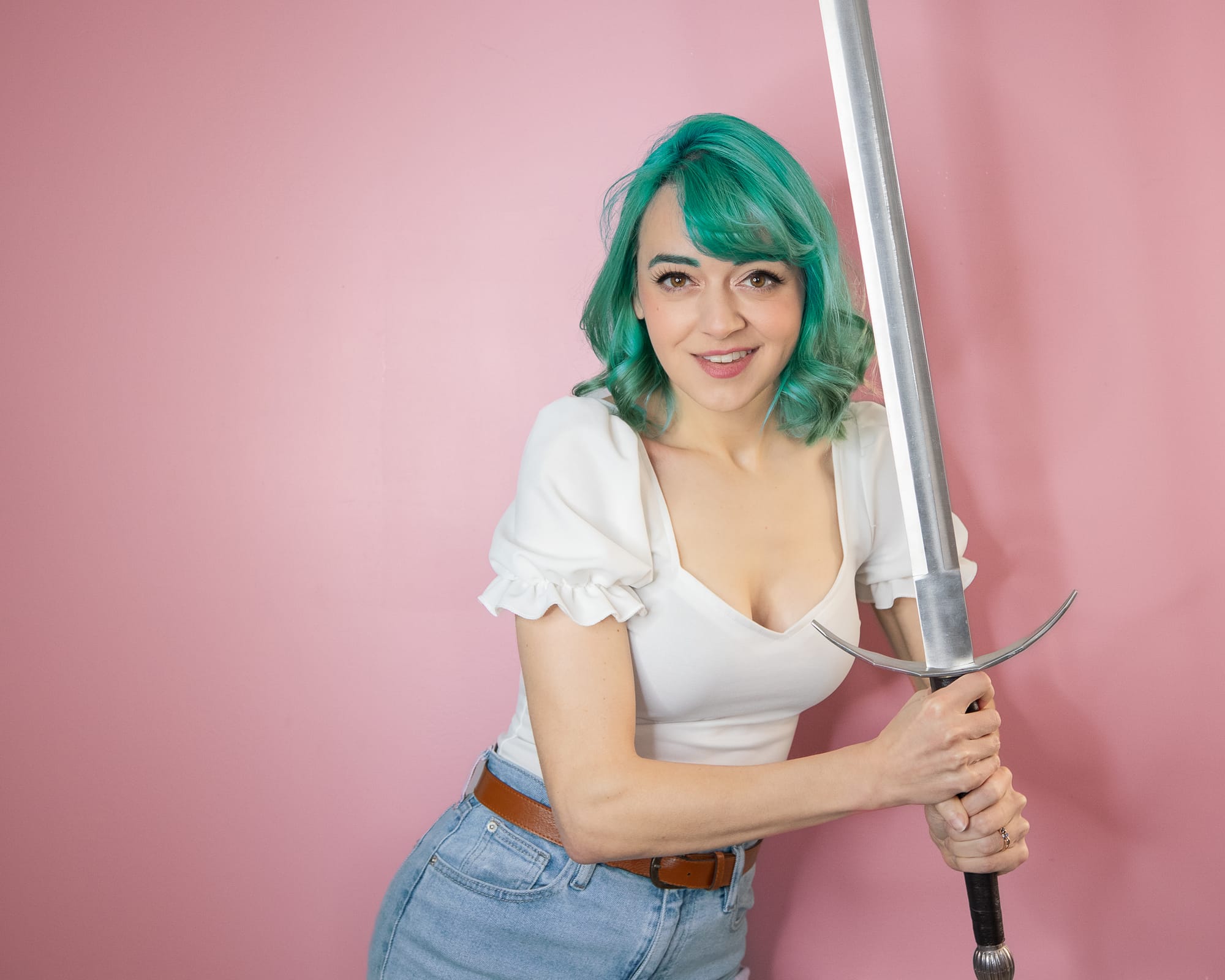
And I guess second place…I don't know if this is necessarily a “me problem” or just a classic tabletop problem, which is that it's impossible to tell if your players are going to cover a ton of ground or almost no ground. It does panic me when I run out of runway in the middle of a session. That is always very, very stressful. So, I try to have two sessions worth of content in terms of just the general arc in my brain, in my notes, even if I know that it's very unlikely we'll get through it, because it stresses me out a lot to feel like we're running out of runway.
And then the third thing is just if there are going to be any items or loot or treasure or things that people find. I don't like when people search for something and I don't have anything to give them. So, even if I'm not planning on giving them anything, I don't want to just off the cuff be like, “oh, you find... nothing really that important or interesting.” Like if somebody rolls really high on Investigation or has a fun idea of where to search, I want to be able to reward them for that. Step three is I try to always just have a handful of things jotted down where I'm like, “these would be reasonable things to give to my players around this time,” just to have as backup.
The things that I do not need to prep at all, even though I really enjoy prepping them, are NPCs, names, personalities, backstories, that kind of stuff. And place descriptions! I feel like I can describe a location immediately out of my brain. Those things are really fun for me, and they're easy for me to improvise, which also means that sometimes I get stuck prepping them because I'm like, “this would be fun to prep!” and I'm not prepping the right things.
Will Savino: There are things that you can improvise, or there are things that you don't really need to improvise because a couple words in your notes is enough to suggest the whole world. I don't need to write “dank and dark and smelly,” I can just write “stinky dungeon,” and I'll remember what I meant.
Ginny Di: Right, exactly. I love to dive-deep on an NPC, but if I write “bored, sexy vampire” in my notes, I know that character. I don't have to come up with all of the things. That's enough.
Will Savino: So, creating NPCs. Actually, that's something that I want to talk to you about as well. I have found increasingly that when creating NPCs, you’re fine as long as you have literally one personality trait, some sort of plot relevance—literally what is their function in the story you're telling—and then, if there's any chance that the players will interact with them mechanically, hopefully a stat block. Like, I'm a junkie for NPC stat blocks in 5e. Not any other game, but in 5e. I just have all these extra resources to make sure, y’know, if the players are going to try to sneak around somebody for some reason, what's that NPC’s Perception. I can make it up on the spot, but it's nice to have a stat block.
But like, that's it: 1) stat block, 2) what the heck are they doing in this plot, and then, 3) are you an asshole? Are you funny? Are you horny? Whatever! Literally one trait is is plenty most of the time, unless it's the big bad or, y’know, the king of the realm or some super critical NPC where it needs to be a little bit more complicated.
Ginny Di: Yeah, I like to have some general physical idea, even if it's just species, like, “oh yeah, that's a kenku,” and then it's fine. That's enough. And then a personality trait, like you're saying, or some kind of quirk or just something that makes them stand out and feel unique. It could literally just be like, “he's got a stuffy nose. That's it. That's all. That's the only thing that differentiates him from other characters.” And then I do really like to know each character's goal, even if that goal is unlikely to come up at all. I think, “what does this kenku-stuffy-nose-shopkeeper want? Oh, he really wants to have kids. That's important to him. He doesn't know if he'll ever get the chance. He's not in a relationship.” Like, that is probably never going to come up. But if anybody engages in more than a few sentences of dialogue with him, I now have something to pull from to make him feel like a person.
Will Savino: Kenku definitely lay eggs, right?
Ginny Di: Yeah, but like he wouldn't.
Will Savino: No, I'm not saying that.
[both laugh]
Will Savino: Kenku are like seahorses.
Ginny Di: If Kenku don't lay eggs, then I don't know what to believe.
Will Savino: Okay. So speaking of NPCs, you helped us out with our setting of Ithivellia. Specifically, the character of Archfae Diadne Bluemoon was largely your creation. And then we wrote a song that you performed as her, and then you cosplayed a version of the character that was based on our artist's depiction of you. It was a bit meta.
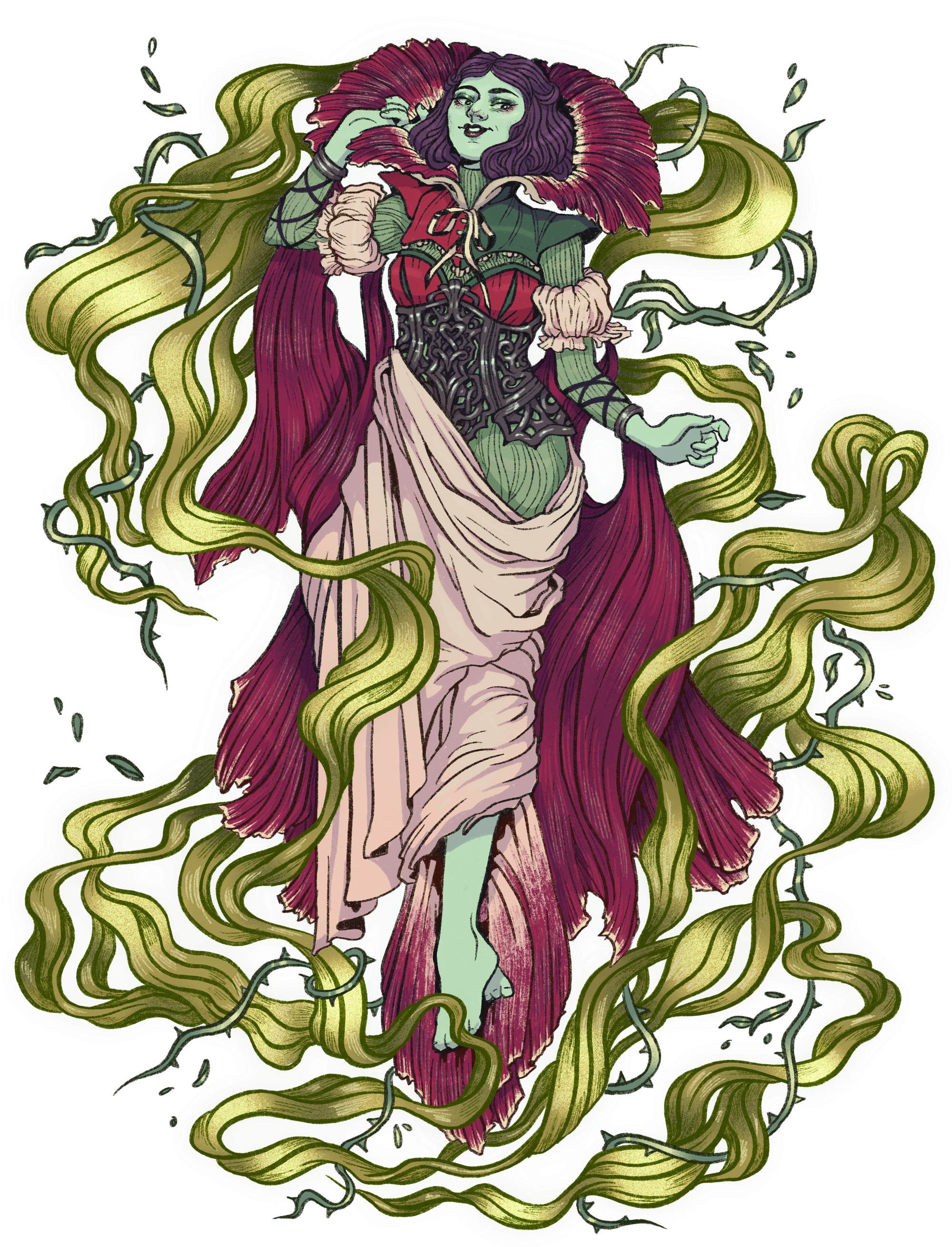
One thing that was cool about that character was when we were coming up with her whole shtick… it didn't really come together or click until you came up with a visual aesthetic for it, which was the corpse flower being the big inspiration. And then, once we had the corpse flower as the visual motif, that was what inspired the magical hook for the character, which was that she became impossibly magical once every millennium or so. It was a backwards way compared to how I normally think about characters, where instead of thinking of plot function and then what they look like, it was really the other way around, where you figured out the aesthetics first, and then it was, “oh, that informs the narrative.”
Is that a thing that you do often? Are there other backwards ways of creating characters where you start from a super unpredictable place like, “oh, you know what song defines this character?” I know that you've you've done playlists for your PCs, but do you ever back your way into an NPC description that way?
Ginny Di: Most of the time, I'm backing myself into a character description, because—for me—I think the broadness of “they could be anything” is stifling to my creativity. Like, if somebody's like “you can be anything you want and there are no rules. Just go!” That I actually find really hard to create within. I like to have something to build on, even if the thing I build on then becomes invisible once that character is done.
And, of course, as a cosplayer and a visual creator, a lot of my characters start with, “okay, what in my closet have I not used for a character yet?” And then I work backwards from that to figure out, “okay, then what does that character look like?”
If I'm going to create another wizard, and I'm out of wizard hats—I've used all my wizard hats—how am I going to make them look wizardy? What kind of items do I have? Oh, maybe she has glasses. How can I make the glasses more magic? Maybe I use these little clip-on jeweler's loupe things. Okay, so what does that say? What is she using that for? Is she an enchanter? I often work backwards that way.
This didn't turn into a real character yet, but I have a notes app thing with just character thoughts in it, and one time I was listening to a playlist, and there was a song on it where there's a line that says, “I love you, but I need another year.” And I was like, “ooh, what if there was some sort of like… y’know those curses or spells that are like ‘for a year and a day,’ such and such.” And I was like, that'd be a fun inspiration for a character. They have a lover waiting for them at home, but they have to do this thing for a year and a day before they can return home to them, and that's their driving force.
So I really like to pull inspiration from literally anything, anything that will give me a starting point, like a launch pad.
Will Savino: One thing that I think worked well about Ithivellia was that it had a really small cast size. It was essentially six main characters, one of whom is missing for the entire campaign.
How do you think cast size interacts with campaigns? Because in a big, long, sprawling adventure, eventually you've created a hundred NPCs. For your five-year campaign, I'm sure you’ve met hundreds of NPCs, but obviously there are a couple of main characters amongst them outside the party.
How do you juggle that balance between wanting a world to feel big and alive, but also finding time to focus on the characters that are really important?
Ginny Di: It’s something that I definitely struggle with. The scale of worldbuilding is a big obstacle for me, and it stresses me out a lot when I'm doing a world, a campaign with a world, which is why I really prefer to run smaller-scale arcs in defined spaces. My published adventure book that I have on my website right now, The Corruption of Alder Glen, I originally wrote for D&D in a Castle. It was only going to be six sessions, so I knew that we needed to keep it kind of constrained. The whole thing takes place in one town, and that allows me to make sure that that there are characters within that adventure that I know will recur, that I know the characters will interact with several times, and that allows me to put more time into developing what those characters are like and and be sure that that'll pay off, be sure that none of that labor is wasted.
I think when you try to expand that up into a larger campaign, that can sometimes lead me to try and do an overwhelming number of things in order to make the whole world feel that fleshed out. I try to think of things more in those sections. I think of each town. Who are the big people in this town? Who are the big people that are related to this problem. We can make a world feel full by describing people that you walk past. People can be walking down the street to a place where you have a named NPC ready to go that they're going to talk with that you know all about. And you can describe six or seven different people that they pass on the street.
Is it possible that your players are going to decide to talk to one of those and you'll have to whip something up? Yeah, totally. And sometimes those characters will spiral into an important character if players get into it! But I don't think you have to prepare a lot of named characters in order for a world to feel full, and I do think that really understanding your core characters is important. The world feels full both from the quantity of characters but also the depth of the characters that you interact with.
I will always err towards depth instead of quantity, because I feel like quantity is so easy to improvise and depth is is harder.
Will Savino: I'm nearing the end of a four-year campaign right now that I'm GMing. Looking back through session notes, I'm realizing that I'm trying to bring all of those regional storylines back together for a big finale, but I just feel like there are a lot of NPCs or plot hooks that were semi-abandoned. That's just the nature of an adventure though, right? This isn't a big epic fantasy novel series where you do really want to tie those threads together. Y’know, in a real adventure, you meet some guys that are there for like five sessions, and then you leave them behind, and that's okay. But I'm just still trying to come to grips with the nature of collaborative improvisational storytelling which means that some ideas are only relevant for a couple sessions, and not everything needs to gel back together.
Ginny Di: I'm a big proponent of just talking about stuff above-table if it helps make your at-the-table stuff easier. Maybe it would be fun in that case to ask your players “everybody, name one NPC that you would like to see reach a conclusion or that you'd like to come back towards the end of this campaign.” And that way, if there is some sort of weird one-off thing where your players are like, “wait, what did happen with that guy who was in love with the mayor's daughter,” then you have an opportunity to resurface that
Will Savino: This is one of those campaigns where I gave my players a home base, and so anyone they liked lives at their house now. So everyone's still there. Every once in a while, they'll return to their manor and I'll have to be like, “okay, who are the 100 NPCs we agreed are living here?”
Ginny Di: We're doing the exact same thing. We have almost everyone's families that we have rescued now living at our estate.
Will Savino: Yeah, classic.
Ginny Di: Just this long list of people that are now cohabitating with each other without us there, because we're like, never home. It's great.
Will Savino: And then at the end of this [campaign], there have been some big battles and whatnot near to where people are, and I'm just like, “okay, do you want your younger sister to be in this battle, or do you send her off?” And they’re like, “nah, she's there. She's fine.”
Okay, now I’ve got to account for whether it’s possible that family members that you've just chosen to incorporate into your crazy “god killing quest” are injured… but that's fun, right? I don't need to ask them, because they've already chosen. These are the NPCs that they really want to bring through with them to the end.
Ginny Di: Yeah. Yeah. That’s a good point.
Will Savino: Okay. Tell me about Monster Week. This is coming up in April?
Ginny Di: April 21st through 25th. This is the second year of a community event that Pointy Hat and I created just to give the tabletop creator community, particularly on YouTube, something to come together about.
There are a few reasons why we wanted to do this. One is that it seems like sometimes the only thing that brings together tabletop creators on YouTube is when we're all mad about the same thing, which is not to say that that can't be valuable. Like, I think there are times when we have to get mad about something in order for things to happen.
Will Savino: What could you possibly be referencing?
Ginny Di: Oh, no! Hah, yeah, but, with the OGL situation, it's good that everybody got mad about the OGL. That's why stuff happened. But at the same time, it does suck to have a community that isn't able to come together over the fun game that we love playing in as meaningful a way or as specific a way.
You see other communities on YouTube have events like.. Antonio [AKA Pointy Hat] and I were thinking of Inktober as being a thing that—no matter what kind of art you do, no matter how you normally participate in the art community—everybody gets to come together and do an event that brings everybody into a community context.
So we wanted to do something similar to that, and last year we did Kraken Week, and we were like, “let's do it like it’s a beach episode for YouTube where everybody does underwater-themed or ocean-themed content,” and we all release them on the same week, and it was a huge hit! We were shocked by how many people ended up participating, even just in that first year. And such a wide variety of content! Like people doing actual plays, I think there was like a cocktail recipe, just such a cool breadth of different creations around tabletop games.
We wanted to repeat this year over year because everybody had such a good time, including us, but we also were thinking “how many years can we do underwater-themed content?” because there were over 160 videos that first year, so we already really thoroughly covered that topic. We decided we were going to break it down into different monsters every year and just call it “Monster Week” overall, which gives us such a broad field to explore.
And, of course, with Dungeons and Dragons, a good starting point there would be… dungeons. Just kidding. Dragons. It would be dragons. We’re doing Dragon Week this year, which is extra funny since Pointy Hat notoriously finds dragons very boring. He's just not interested in dragons. He talks about it all the time on his channel.
Will Savino: I mean I love dragons. I hate D&D dragons. I think D&D dragons are... eugh. But, y'know, maybe that's good fodder for a video. Why does every dragon have some variety of breath weapon plus tail attack, plus maybe a spell, plus maybe shapechanging… I don't care! I don't care! Give me something weird. That's my opinion.
Ginny Di: Yeah! that's what's fun about everybody talking about dragons is that everyone can bring whatever thoughts they have on dragons no matter how diverse they are. Some people are highlighting their favorite dragons. Some are telling you how to run an adventure with dragons. Some are talking about how they are completely remaking dragons to be more like what they want.
I'm talking about dragons as friends, because—as much as dragons as enemies are fun—I mean, half of dragons, all metallic dragons are good-aligned! You gotta have dragon NPCs and dragon pals. Also, as somebody who grew up reading the Dragonriders of Pern books, I've always wanted to have not only a friend dragon who is big that I can ride around on, but also a friend dragon who's little and can sit on your shoulder. The fact that there's only one kind of pseudodragon when there are so many kinds of dragons is nuts to me, so I'm inventing a bunch of variant pseudodragons and stuff. It's gonna be really fun.
Will Savino: That's good. That's clever!
Ginny Di: So the way that Dragon Week works, it's not like an invite-only event or anything. Anybody who wants to participate can just make something related to dragons and share it between April 21st and April 25th. Our official ways to collect all of the submissions are YouTube playlists, so if you don't post to YouTube, we won't be able to add you to the playlist, but that doesn't mean that you can't do it. People can absolutely post anywhere. Just call it a Dragon Week thing, and hopefully the community can amplify it and share it.
Will Savino: What a great idea. So much of what we all do is just, “oh, I'm part of a community… technically.” But in reality, I am in this studio 24 hours a day working on my own stuff, so it's great to have an excuse to interact with everybody.
Well, thank you so much for talking with me. It's so fun to get a glimpse into what people are actually doing in their games, because I find that usually much more fascinating than, “this is what I say you should do in D&D,” or, “this is the recorded podcast.” I love learning that everybody actually has those three-hour sessions where it's just talking to idiot NPCs and not advancing plot. It's so reassuring to me as a GM that that's good and people like that.
Ginny Di: I totally get that it is weird that we have this vision of what is going on at tables that is produced, and that's different from what we actually do. But sometimes people are like, “well, you give all this advice, but we never actually see you execute it, because you don't GM on recordings or on streams.”
And I'm like, “yeah, that sure is a decision that I've made. You're right. If that makes you not trust my advice, then that's fine. You don't have to watch my videos.”
I don't necessarily think that watching someone play live on camera, knowing that they're on camera with a cast of performers… I don't really think that that's necessarily authentic to the way that they play anyway.
Will Savino: Or instructive!
Ginny Di: Yeah, yeah!
Will Savino: If you watch Ginny doing something recorded, you must know that that's not what a home game is like. So if you're taking lessons from that, they might be the wrong lessons!
It's like your improv video. “Yes, and…” probably is pretty good for actual plays, if only because it makes sure that the plot keeps moving. But in a home game, I mean, I love telling my players, “no, man, you can't do that. Let's take a step back. You guys come up with a different plan because I'm not going to GM rules for making that work.” And that's good, and that's better, and everyone agrees that that's cool.
But, in an actual play, that would be simply cut. Unless it were streamed live, you would just cut that. And then, you know, the players would come up with a plan that's more GM-approved.
Ginny Di: Yeah, for sure.
Will Savino: And so: lessons not learned correctly.
Ginny Di: Right!
Will Savino: Well, I really appreciate getting a chance to talk with you.
Ginny Di: My pleasure!
Will Savino: And hopefully folks go and participate in Monster Week, because it's not invite only.
Ginny Di: Right. Anybody. Anybody can do it.

